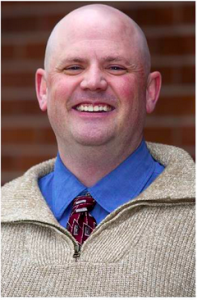A guest post by Tracy Mangum.
Love it or hate it, Fifty Shades of Grey is a cultural phenomenon. Since Random House bought the rights to the trilogy in 2012, the series has sold over 100 million copies worldwide. Trailers for the movie have been view 250 million times, and has already made over $300 million at the worldwide box office. That means that Fifty Shades is about to become all the more influential, so now seems like a good time to discuss writing sex for screen, and what it’s like filming those scenes.
Note, I haven’t read Fifty Shades, nor have I seen the movie. I also have never written or filmed a sex scene. I do have a BA in film studies, but if my lack of first hand knowledge upsets you, you have permission to click away now.
Still here? Awesome.
Sex in film is a tricky subject. There’s a fine line between too explicit and too tame, and either side can cause you to lose the audience. Another problem from a writing standpoint is that the screenwriter is the least important part of the sex scene. It’s up to the director, the actors, the director of photography, and the editor to determine what will be shown on screen. As a screenwriter, you never give directions or suggested shots/edits in your script. You are there to paint the overall picture and allow the director to make the specific decisions.
The first thing to think about is why are you including a sex scene in the first place. You could just fade out on a couple kissing, and then fade in on them in bed the next morning. The fade is a common editing technique to suggest a passage of time, and it visually gives the audience the information without actually showing anything. You need to have a solid rationale as to why we need to see the scene take place. You need to find the drama in the sex: Is the relationship disintegrating? Is there a healing happening? The script needs to explore the relationship between the characters that is happening during the scene. The scene isn’t about sex, but rather the exchange of emotions. Is it rage, or desolation, or exultation, or tenderness, or surprise? If your scene is only about lust, it might be shocking at first, but quickly becomes boring.
You as the screenwriter sitting at the laptop can easily create a vision of two individuals expressing their love to each other. These characters are deeply in love and this intimate moment plays out beautifully as they lovingly caress each other. Sounds lovely in your head and on paper, but remember you are asking real people to bring your vision to life.
You have two actors that may be strangers, may be friends, may have a decent working relationship with, or maybe despise each other, strip naked, and pretend to share intense intimacy with each other. They have to be mindful of technical restraints such as where the camera focus and framing is, reciting any dialogue, choreographed movement with their partner, all in front of bright lights, cameras, and about 10+ people on set watching. Then you have to do the exact same scene from multiple angles and you try to perfectly replicate the movements and speed in each take to make it cut together in post-production.
Filmmaking is a construction of reality that is very mechanical, practiced, and choreographed. It is made to look like the camera/audience has just happened upon this intimate moment between two people, but the reality is anything but that. Scenes will often be framed to show the actors heads, and only part of their upper torso. This will allow the actors to keep pants on. For scenes that need to show more of the body, actresses often wear flesh colored underwear, and men will wear what is basically a sock. Often times, the actor/actresses significant other is on set to watch and make sure nothing unusual occurs, but this can make a difficult scene even more awkward.
But what about films that appear to be much more explicit like “Nymphomaniac” or “Blue is the Warmest Color” or even “Game of Thrones” on HBO? They look so realistic! Well, that’s because they are good at creating a false reality. Filmmakers will use body doubles, clever lighting and editing, body molds/props, or even computer generated images.
So as you write your script, remember that a good sex scene is just like any other scene in the film. It needs to have a reason to be there, reveal something about your characters, and propel the scene forward. If it doesn’t meet that criteria it shouldn’t be in your screenplay. Cut it out before the director leaves it on the cutting room floor.
I’m a local Salt Lake City filmmaker and blogger.
My short film “Father Knows Flesh” won Best Picture, Best Director, and Best Actor at the SL Comic Con FanX Film Festival last year. I cover the Marvel Cinematic Universe, Agents of Shield, Gotham, and Disney for Lord of the Laser Sword.


